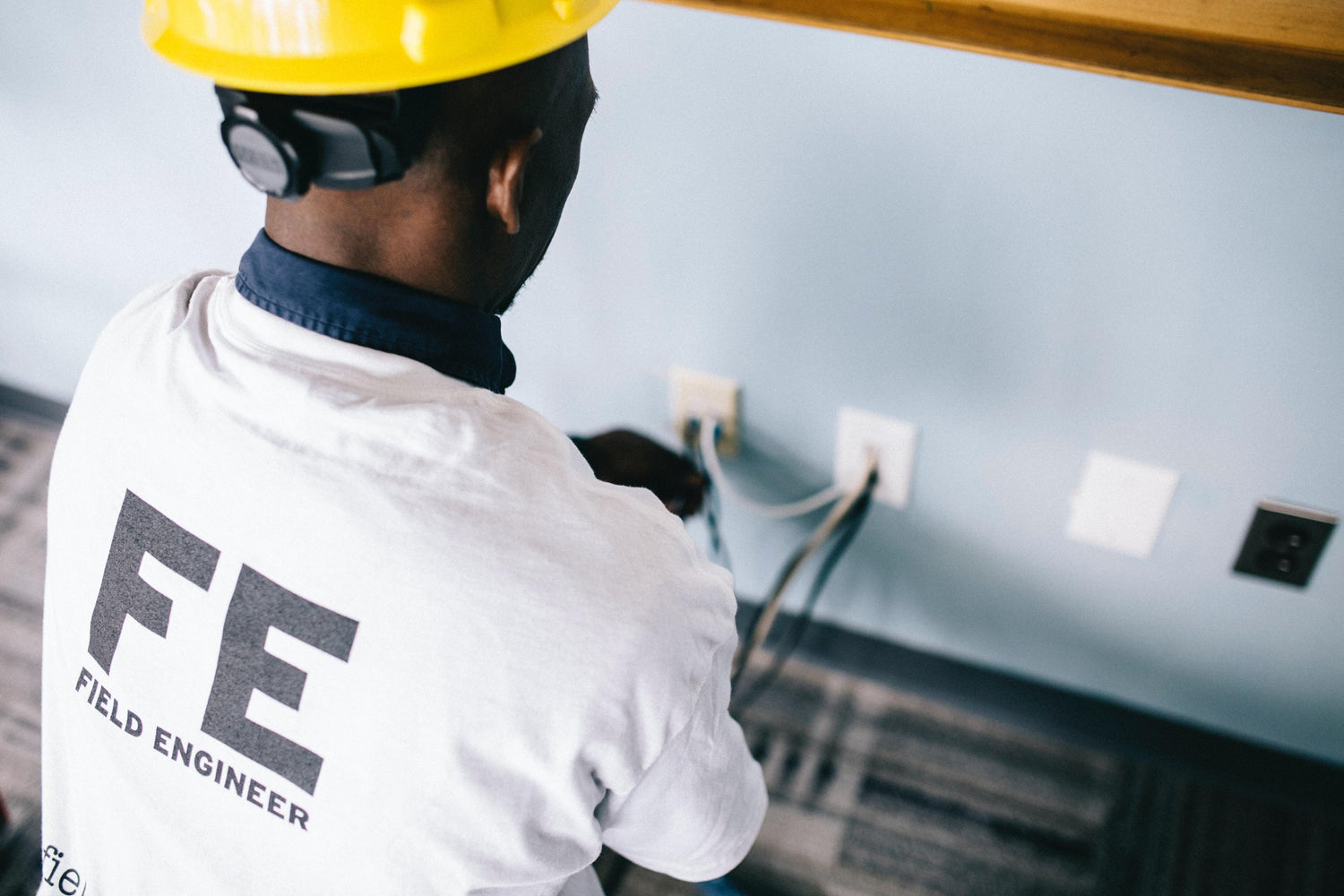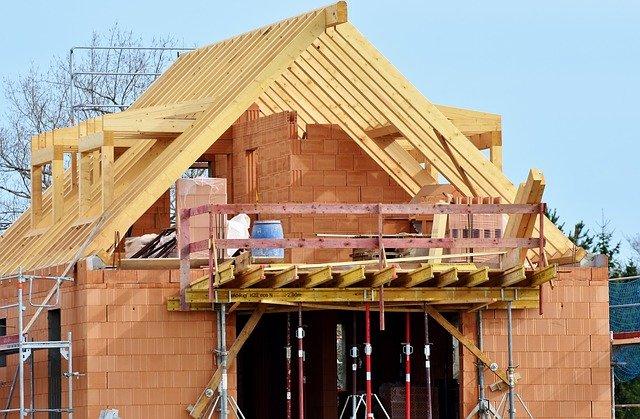
For a building to be marked as successfully completed, it must have undergone various stages of engineering activities.
One of these stages has to do with electrical installations during construction and maintenance after construction. Electrical engineers are key components to the success of any construction.
They are professionals tasked to handle both low and high voltage equipment and connections such as lighting systems, standby power generating plants, power distribution systems, and other power devices.
In a construction site, the job of an electrical engineer involves some temporal functions that will aid the building construction process.
Listed below are some of the duties of an electrical engineer on a construction site.
Electrical Engineer Responsibilities Construction Project
Safety Orientation for Workers on Site
Construction sites are usually busy places with a lot of construction going on at the same time. Workers are bound to use electrical appliances in the course of their duties whether electrical installations have begun or not. This may pose a danger to them if not managed properly.
The electrical engineer must give a thorough orientation to the workers on how to ensure electrical safety on the site.
He enlightens them on the meaning of electrical signs and symbols, teaches them the proper way of turning on and turning off the power supply in cases of emergencies, shows the workers high-risk areas they should avoid, and educates the workers on the proper use of personal protective equipment (PPE) and what to do in the case of electrical shock while working.
Also, during visits by supervisors or non-workers, the electrical engineer has to educate them on the do's and don’ts while moving around the site.
Most times, the wirings and connections are unfit to be accessed by a non-worker. If they must come close to these wirings, they must be properly guided.
Managing the Generation, Transmission, and Distribution of Power

Handling electrical power comes with a lot of technical know-how and skill. The services of an electrical engineer are inevitable in cases where power has to be generated specifically for a building and properly managed so that it gets to all parts of the building.
Electrical engineers are trained to calculate the load (power consumption of appliances) of a building and ensure that the power generating plant gives exactly the desired output.
The mode of transmission of the power generated is also another power management that requires proper handling by an expert to avoid accidents in the course of the connection.
These engineers are required to carry out regular servicing on the power generating plants to keep them running in good shape. They continually ensure that transmitting wires are well covered and connections are not tampered with by anyone, as any electrical mishap may lead to fire hazards.
During the construction stage, there's usually a need for a temporal provision of electricity all over the construction site. This is to provide a good lighting system that will aid working at night or a reliable power source for equipment and machines.
Design of Electrical Plan

Before the wiring and installation of electrical components take place in any building, there has to be a plan.
The electrical plan, also known as a wiring diagram or electrical diagram, gives a visual representation (through the use of technical drawing) to show the kind of circuits and electrical system to be implemented on a building.
The design of an electrical plan is important because it shows how different electrical systems in a building will be connected, the ratings of power lines, the positions of power transformers, switches, bulbs, solar panels, batteries, and so on.
It's the job of electrical engineers to design plans that will guide technicians and other workers on-site during construction.
Overseeing Technicians and Craftsmen
Electrical technicians are mostly responsible for the installation of wires, circuits, electrical outlets, and components. They read the blueprints to determine the positions to fix electrical components and the kind of connections to be done.
In the course of electricians carrying out their duties, they are likely to misinterpret some specifications and annotations. Some of the fixtures may not have been fixed properly as they should.
It's the duty of the electrical engineer to supervise the activities of electrical technicians and craftsmen to ensure that all wirings and fixtures are done according to the specifications on the blueprints.
He will be held responsible should there be any failure in the electrical system of a building.
Budgeting, Estimation, and Purchase of Electrical Components
Budgets are made before a building is erected. Budgets concerning the electrical systems of a building are best handled by an electrical engineer.
In the course of drawing his plan, he estimates the number of wires, number and types of switches, bulbs, circuit breakers, and every other electrical component required. He then gets in touch with various supply firms to get a price list of the items and proceeds to purchase them upon approval and release of funds.
Due to the training they received while studying, and coupled with their experiences in the field,
Electrical engineers are the best to purchase the items used for the electrical system of a building because they have the ability to spot inferior components and determine the best ones that will be suitable for the building.
Enforcement of Safety Standards
It's a top priority of an electrical engineer to ensure that there is maximum safety both during and after the construction of the building.
He enforces safety measures by ensuring that all site workers and visitors visiting the construction site are properly dressed in their personal protective equipment (PPE).
It's the duty of an electrical engineer to ensure that all bare connections are covered or marked as high-risk areas and made inaccessible by workers. He also ensures that there's an efficient power breaking system that will cut off the power supply in the cases of surging electric voltage that may cause damages to the electrical system of the building.
Fire alarms and fire extinguishers are installed in the building by the engineer to provide safety in the case of eventualities. The engineer, in liaison with other engineers on-site, should be able to provide an emergency exit out of the building in the case of a fire outbreak.
Resolving Electrical Issues

Electrical issues are inevitable. In the course of any developing fault in the electrical system of a building, it's the responsibility of an engineer to carry out extensive tests to ascertain the cause of the fault.
He’ll be able to figure out the electrical plan of the building and quickly detect the fault and resolve it. This is possible even in the absence of a blueprint or in situations where modifications have been made to the original plan of the building.
The engineer proffers long-lasting solutions by seeking to determine the root cause of the fault and carrying a wholesome repair.
Testing and Installation of Systems
Test-running of newly installed components and systems during construction is also the job of an electrical engineer. He has to ensure that all installed systems meet specifications, local and national electrical codes, and are safe for use.
It’s important to note that every component of an electrical system is tested and certified safe for use after installation. A fault in any part of the system may trigger a bigger problem that may result in fire hazards.
General Electrical Maintenance

As part of measures to ensure that the lifespan of a building is protracted to its maximum limit, a regular maintenance culture has to be observed. This maintenance culture involves a thorough and periodic inspection of the electrical components of the building.
It's the duty of an electrical engineer to check for naked wires eaten open by rodents, check if the fire alarms and fire extinguishers are still working properly, check if the parts of electrical components or systems are worn out and need replacement, or check if the electrical supply is sufficient enough to bear the load of the building.
Working on High-Voltage Lines and Equipment
The electrical engineer handles the power fed into pieces of equipment or machines requiring high voltage.
He also needs to design and manage wires and electrical systems carrying high voltage in and around a building. This is because high voltages have higher chances of causing electrocution if not handled properly.






Leave a comment
This site is protected by hCaptcha and the hCaptcha Privacy Policy and Terms of Service apply.